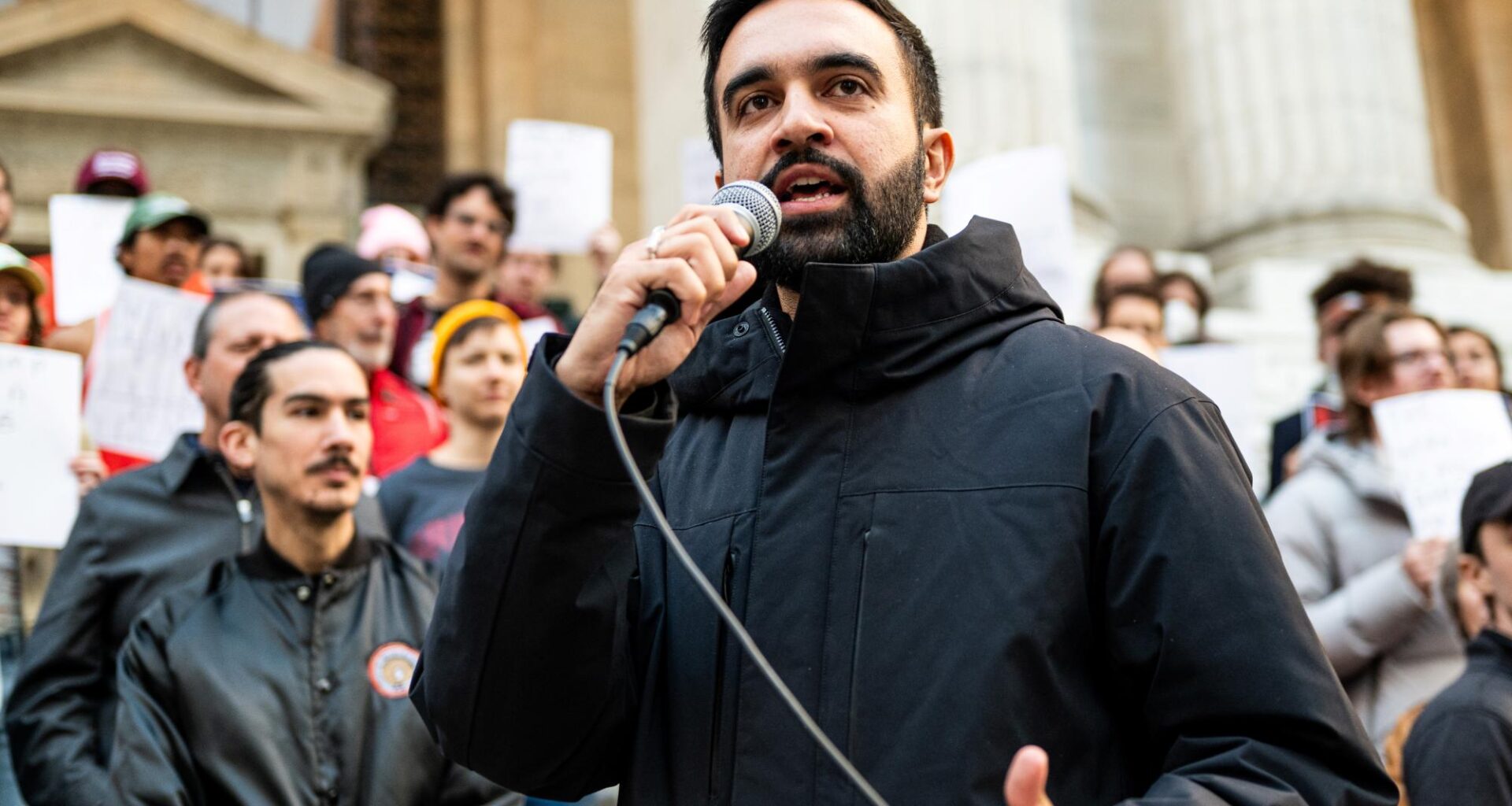This past Tuesday, the five boroughs of New York City elected 34-year-old Zohran Mamdani as their mayor. The democratic socialist’s campaign was a blend of pragmatism and idealism, promising to make all city buses free and to tax residents earning more than $1 million annually, reinvesting the proceeds into housing, transit and social services. The vision focuses on infrastructure and social equity — a welcome change from the often impotent anti-Trump campaigns of mainstream Democratic candidates.
A member of the Democratic Socialists of America, Mamdani has been labeled a progressive. In truth, he’s something closer to a left-wing populist. Using platforms like TikTok and Instagram, Mamdani was able to run a grassroots campaign — something that right-wing candidates have been doing for years. Like Bernie Sanders before him, Mamdani channels frustration with the status quo into an economic agenda that speaks directly to working-class people. The difference is that — unlike Sanders — Mamdani has won in a city long governed by tech autocrats and corrupt politicians alike.
Twenty-four years after the events of Sept. 11, the election marks the first time that a Muslim mayor has served in the city’s highest office. In a pre-election speech, Mamdani made light of Islamophobic rhetoric promoted by Eric Adams and Andrew Cuomo, saying, “To be Muslim in New York is to expect indignity, but indignity does not make us distinct — there are many New Yorkers who face it. It is the tolerance of that indignity that does.” For myself and many others, Mamdani’s election represents America’s departure from the kind of reactionary Islamophobia promoted by the War on Terror.
For moderate and right-leaning New Yorkers, the political newcomer’s election has proven to be an upset. A pre-election poll from Victory Insights suggested that 26% of New Yorkers would “consider moving out” if Mamdani wins, as well as 39% who see the democratic socialist’s election as a “threat to New York City’s future.” The poll’s numbers reveal a deeply American fear of the kinds of bold redistributive policies not seen since the days of FDR and LBJ. Whether New York’s economy will be able to stomach these policies, only time can tell.
Starting with President Andrew Jackson, America’s history of populism includes names like U.S. Senator Huey Long, presidential candidate Ross Perot and President Donald Trump. While Jackson’s presidency was anything but peaceful — bypassing the Supreme Court in order to ethnically cleanse the Native American population — other populist politicians, like Huey Long, used their grassroots support to focus on social welfare issues. Maine’s U.S. Senate candidate Graham Platner exemplified America’s spotty populist history with his recent Nazi tattoo debacle. Despite the ignorant tattoo choice, the Senate candidate has gained the support of Bernie Sanders — a secular Jewish senator from Vermont. Platner’s controversy — much like Jackson’s presidency — shows the risky nature of populist, non-career politicians.
No doubt, the challenges ahead for Mamdani are immense. New York faces a multibillion-dollar budget shortfall — a fact not made easier by the city’s fragile relationship with Albany. If the new mayor can forge coalitions between old-school and progressive Democrats, he has a chance to prove that socialist policies can find a place in American cities. If not, he risks becoming a cautionary tale, like Obama in his first term. But while Obama faced a Republican Congress determined to sabotage him, Mamdani’s opposition will come from the neoliberal Democrats who continue to treat Goldman Sachs as a constituent.
Despite the uphill battle he faces, I support Mamdani — in fact, I voted for him by requesting an absentee ballot. He represents the economic issues that, for fear of upsetting their donors, the Democrats have avoided for years. More importantly, he represents the true American Dream — that anyone, no matter where they are born or what faith they belong to, can become an American. While it remains to be seen if Mamdani will be able to implement his futuristic vision, the political upset caused by his election can only do good. In a decade defined by Trumpist populism and billionaire tech autocrats, New York has finally produced a populism of its own — one rooted not in division but in solidarity.
Stepan Kopeykin is a transfer student from the Borough of Manhattan Community College. His favorite movies and books include Interstellar, The Big Lebowski, Choke and The Secret History. You can find him drinking three to four cups of tea a day, playing catch with the wall outside of Hillman. He runs a personal Substack page and can be reached at [email protected].
